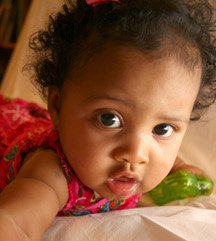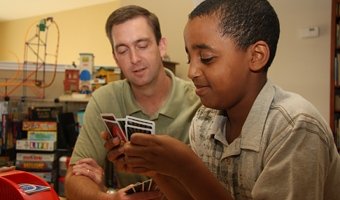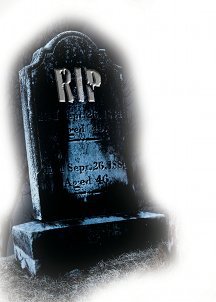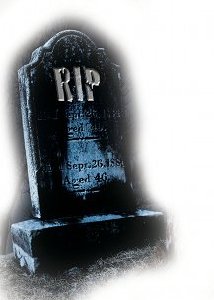WASHINGTON (ABP)—Thanks to the Internet, some gullible American Christians can engage in one of their favorite hobbies—digging up the metaphorical corpse of Madalyn Murray O’Hair and rhetorically flogging it—more easily than ever before.
Even though the famous atheist’s body was discovered in 1998 and positively identified in Texas—and even though she apparently has been dead since she disappeared in 1995—patently false rumors about her alleged anti-Christian campaigns continue to spread. Credulous Christians who once forwarded these kinds of rumors in mimeographed chain letters or spread them on talk radio now can broadcast them around the world with the mere click of a mouse.
|
Like creatures out of a Grade B horror movie, some urban myths and folk legends refuse to die. And for some reason, they seem to haunt the e-mail in-boxes of Christians more often than not.
|
And, of course, O’Hair is not alone in the annals of perceived enemies of Christ about whom some Christians will spread the most ridiculous stories, not bothering to do the merest hint of fact-checking on them.
From the old Procter & Gamble Satanism libel to tales of more recent vintage about President Obama’s faith and citizenship, Internet-fueled rumors seem to run rampant. And, frighteningly, Christians seem at the very least to be as susceptible as the population at large to spread false stories.
So, why are Christians so willing to believe unsubstantiated rumors? And more troubling, why are Christians, who should hold the highest standards of truth-telling, so eager to spread rumors—and even downright libels?
Christians are not necessarily any more gullible than the population at large—and there’s the rub, said Bill Tillman, a Christian-ethics professor at Hardin-Simmons University’s Logsdon Seminary , a Texas Baptist school.
“Their gullibility seems to follow the culture’s levels and channels of gullibility,” Tillman said. “That similarity should give Christians pause to think: If I am no different than the surrounding culture on the treatment of e-mails and communication they carry, with what else am I no different?
“I do think that, like the larger culture, some Christians do follow certain patterns that reflect where their theological ideas parallel their political ideologies.”
The atheist who just won’t die
Historically, O’Hair is the hands-down favorite target of the Christian rumor mill. Some tales tied to her name have been in circulation for more than a quarter century—before fax machines and e-mail made rumor-spreading infinitely easier.
The most pervasive and indestructible O’Hair rumor credits her for a campaign to ban religious broadcasting. It links her to a petition to the Federal Communications Commission the e-mails claim would remove all Sunday worship services from radio and television. O’Hair typically is identified in the e-mail as the atheist “whose effort successfully eliminated the use of the Bible reading and prayer from public schools 15 years ago.”
Some versions of the e-mail link the petition to an effort to remove religiously themed television shows, specifically mentioning Touched by an Angel.
There indeed once was a petition about religious broadcasting filed with the FCC, but that’s the extent of the truth in this rumor. The petition, called RM 2493, was filed nearly 35 years ago—but not by O’Hair, and not to eliminate religious broadcasting.
According to Snopes.com, a website that debunks urban legends, e-mail rumors and other myths, Jeremy Lansman and Lorenzo Milam asked the FCC to prevent religious organizations from obtaining licenses to operate radio and TV channels reserved for education.
The petition was not intended to ban all religious broadcasting, but rather to prevent religious organizations that operate universities and schools from receiving FCC licenses for broadcast frequencies reserved for educational use. The FCC turned down the petition in August 1975. And O’Hair never had anything to do with such a petition.
There are other problems with the latest rumor. O’Hair’s infamous court case—in 1964, not 15 years ago—didn’t eliminate Bible reading and prayer from public schools but rather led to the Supreme Court decision that said government-sanctioned school prayer and school-led devotional Bible study are unconstitutional.
Moreover, the FCC would not have the authority to ban religious broadcasting, since such a rule would blatantly violate the First Amendment’s religion clauses and would be overturned by the Supreme Court.
But the rumor just won’t die. According to Snopes.com , the FCC has received at least 30 million letters, faxes or e-mails expressing opposition to this petition since 1974. The only new element in this later incarnation is the mention of Touched by an Angel. Laying aside any curiosity about why anyone would be bothered by the cancellation of a TV show that’s been off the air six years, there remains the problem of how someone who’s been dead for nearly 15 years could testify before the FCC.
But O’Hair’s posthumous powers really shouldn’t surprise us. Labeled by Life magazine in 1964 as “the most hated woman in America,” O’Hair is considered enough of an enemy by many Christians that they are willing to believe just about anything about her. The advent of the Internet only made the rumors easier to spread and harder to correct.
Rumors about what people love to hate
Rumors like the ones tied to O’Hair become more powerful when they tap into the hostility and distrust toward government that is widespread among conservative Christians. It’s easy for the average evangelical to believe any rumor that fits this larger political paradigm.
Factor in a contentious presidential election and the stakes go even higher. During the 2000 campaign—the first in the age of widespread Internet access—dutiful Christian culture-warriors worked overtime.
One popular e-mail rumor claimed then-Attorney General Janet Reno had described evangelical Christians as “cultists” in a 1994 60 Minutes interview. The fabricated story received such wide distribution that Religious Right leaders James Dobson and Jerry Falwell had to warn their followers publicly against believing it.
Another e-mail rumor prevalent that year credited then-Vice President Al Gore with a campaign-speech gaffe. To quote the e-mail: “In his typically stiff, condescending and insincere manner, he said his favorite Bible verse is John 16:3. Of course, the speech writer meant (John) 3:16, but wasn’t even familiar enough with this often-quoted and, of course, often-taken-for-granted Scripture to catch the error. Neither was Gore, and how incredibly appropriate it is.”
John 3:16 reads, “For God so loved the world that he gave his one and only Son, that whoever believes in him shall not perish but have eternal life.” But John 16:3 reads, “They will do such things because they have not known the Father or me.” The implication was obvious: Gore’s misquote was some sort of Freudian slip that revealed his true un-Christian nature.
Like the others, this story is untrue, according to Urban Legends, another website that investigates e-mail rumors and other folklore—www.urbanlegends.com . The irony of the rumor is its original source.
According to conservative columnist Cal Thomas, the quote is real but Al Gore did not say it—then-President George H.W. Bush did, 20 years ago.
“Bush said it in my presence at a religious broadcasters convention about 1990,” Thomas told Urban Legends. “And I wrote about it in my book, Blinded by Might: Can the Religious Right Save America? But somehow it got twisted around and stuck on the Internet and put in Al Gore’s mouth. He (Gore) has got a lot of stuff that he has to defend, but that’s not one of them.’”
Things only got worse in the 2008 election. With one candidate deeply distrusted by the Religious Right having a background unlike any presidential contender before him—a nominally Muslim father from Kenya, a freethinking American mother who raised him in the United States and, for a time, in Indonesia—the rumor mills worked overtime.
Many of those e-mails seemed marketed directly to fearful Christians. One frequently forwarded message—also debunked by Snopes—identifies Barack Obama as the son of a black Muslim from Kenya and a white atheist from Kansas.
“When Obama was two years old, his parents divorced. His father returned to Kenya. His mother then married Lolo Soetoro, a radical Muslim from Indonesia,” the erroneous e-mail reports. “When Obama was 6 years old, the family relocated to Indonesia. Obama attended a Muslim school in Jakarta. He also spent two years in a Catholic school. …
“Lolo Soetoro, the second husband of Obama’s mother, Ann Dunham, introduced his stepson to Islam. Obama was enrolled in a Wahabi school in Jakarta. Wahabism is the radical teaching that is followed by the Muslim terrorists who are now waging Jihad against the western world. …
“Since it is politically expedient to be a Christian when seeking major public office in the United States, Barack Hussein Obama has joined the United Church of Christ in an attempt to downplay his Muslim background. … Also, keep in mind that when he was sworn into office he did not use the Holy Bible, but instead the Koran.”
First of all, while his father was raised a Muslim, he did not practice the faith by the time the younger Obama was born. Obama has described his mother as a religious seeker who was raised a Christian but never has described her as an atheist. His stepfather was an oil executive, and no credible accounts ever said he was a radical Islamist—the “fact” that he married an alleged “atheist” would sort of mitigate against that.
Obama attended a Catholic school and a predominantly Muslim public school in Indonesia in which religion classes were offered. There is no evidence radical Saudi Wahabism was ever taught in that school—although the accusation that Obama attended such an Islamic “madrassah” was so pervasive it made its way into the mainstream media—via Fox News—in 2008.
Obama made a profession of faith in Christ and joined Trinity United Church of Christ in Chicago in the late 1980s, long before he sought public office. And the Koran swearing-in rumor is patently false. Its originator apparently has Obama confused with Rep. Keith Ellison, D-Minn., who became the first Muslim ever elected to Congress in 2006 and raised some controversy when he was sworn in on a historic copy of the Koran that once belonged to Thomas Jefferson.
Rumors about the living
Political rumors like these are more damaging even than the O’Hair rumors because Obama, Reno and Gore are real, living public figures with careers and reputations on the line.
Of course, rumors can be used to enhance a reputation as well. One e-mail hoax in recent years that received wide circulation was that President George W. Bush, at a thank-you dinner for campaign workers after the 2000 election, took time out of his duties to share the gospel with the son of a volunteer. As the story goes, the boy prayed to receive Christ on the spot, with Bush leading the prayer.
It is, unfortunately, untrue. Bush’s campaign never held any such dinner, and campaign officials said the pressing time commitments of the ongoing Florida recount would not have allowed Bush to deviate so dramatically from his schedule even if he had wanted to.
Those minor details didn’t stop many church newsletters and websites—even the website of Christianity Today, the flagship evangelical publication—from reporting it as fact.
The Bush rumor fits a pattern that folklorists call “cult of personality” myths. They often spring up around new presidents and are most prominent among the president’s core supporters.
Some Christians are so willing to believe rumors that reflect well on their heroes and poorly on their opponents that they abandon even a modest concern for the veracity of the rumors. Yet the Bible clearly prohibits “bearing false witness” and spreading rumors and gossip. Perhaps Christians who spread such rumors think they serve a greater purpose, as if the end justifies the means, some ethicists speculate.
The real truth
Ethicist Tillman called on Christians to examine their biases and prejudices, which he described as “tough exercise,” because it forces Christians to explore the influences that shaped them.
Gullibility may grow out of fear and anxiety, he added. And that directly relates to what people believe.
“I suggest to my students, ‘Tell me something about your fears, and I will tell you something of your theology,’” Tillman said. “Dealing with our fears—an action usually dismissed or ignored—may be one of the keys to understanding just which e-mails we forward and those we don’t.”
David Gushee, a Baptist ethicist at Mercer University’s McAfee School of Theology in Atlanta, agreed Christians who spread tall tales by e-mail reflect a significant slice of American culture and act out of deep emotion.
“Certainly, many Christians seem attracted to conspiracy theories and urban myths and these mass e-mails that propagate them,” he said. “But I am not sure if that is because they are Christian or because they are just Americans of a certain type—people who feel angry about the way the world is, who feel alienated from ‘elite culture,’ who feel embattled by cultural trends that they cannot control and do not at all like, and who often feel looked down upon by those with more education or higher social status.”
The key to confronting such bad habits among Christians is proper spiritual formation on the ethics of truth-telling, gossip and rumor-spreading, experts said.
“Congregations should nourish true spiritual friendships—relationships in which others will love us enough to instruct and correct us,” said Robert Kruschwitz, director of Baylor University’s Center for Christian Ethics .
“If we are gullible, we need some help to sort out the nonsense we should question from the truth that we should spread… If we are fearful and envious, just too quick to gossip or criticize, we need that deep love that calms our fears and removes the need to impress others. That love comes from God through Christ, but the Holy Spirit often communicates it to us through our good spiritual friends.”
Tillman said Christians should learn the “put off” and “put on” pattern of behavior the Apostle Paul taught in the New Testament.
“He exhorted the early Christians to ‘put on’ virtues—good character traits. … My thought is that Paul intended to educate people to fill their minds with positive things and living the gospel out of those frameworks than if they were loaded down with ungodly traits,” he said.
“With the ‘put off’ side of his guidelines, he told the early Christians to put away vices, one of the primary ones being gossip. … That term, by the way, is understood off the pages of the New Testament as tale-bearing, tattling, slandering—the acts which should not be attached to any Christian.”
Gushee pointed to multiple New Testament principles pertinent to the matter of spreading urban myths—loving one’s neighbor and one’s perceived enemy, not participating in gossip, not judging others and observing the Golden Rule.
“In general, we need to help Christians act like Christians in public life and not just in private life, and not to get sucked into the polarization, partisan idolatry and demonization so common now in media and government,” Gushee said.









